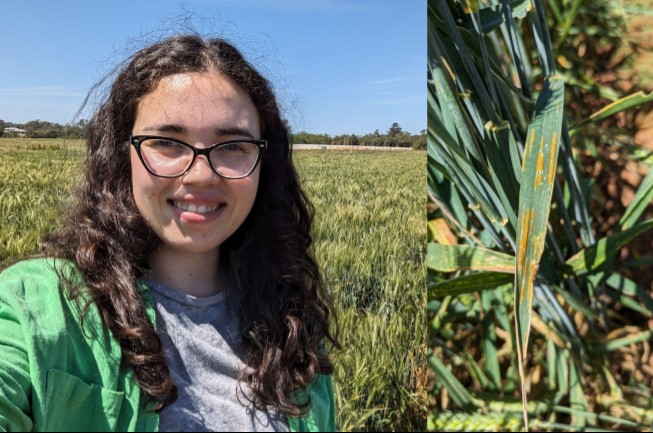PS PhD Exit Seminar - Positive reporters of defence induction for screening effector recognition in wheat protoplasts
In response to plant disease as a severe limiting factor in crop production, genomics-informed surveillance promises to support crop protection and biosecurity efforts.
Speakers
Event series
Content navigation
Description

Abstract: In response to plant disease as a severe limiting factor in crop production, genomics-informed surveillance promises to support crop protection and biosecurity efforts. Tracking the functional parts of pathogen genomes will inform decision-making for fungicide application, selection for resistance or susceptibility of specific crop varieties and predict the epidemic potential of new fungal incursions. However, for this to be effective there is a need to identify the pathogen genes which cause disease or trigger host resistance. Currently there are relatively few rust fungal avirulence (Avr) and host resistance (R) gene pairs that have been cloned.
Rapid advancements in computational genomics, especially in accurate genome phasing and the development of pangenome resources have been highly informative, however biological validation and screening of Avr candidates lags behind. My research aims to accelerate screening efforts using a transient transfection assay in wheat protoplasts. In this assay, screening of avirulence candidates can be completed without overexpression of cloned resistance genes. A defence-activated reporter provides a positive bioluminescent readout to indicate host recognition of an Avr, successfully detecting interactions in pools of up to twenty-five Avr candidates at a time. Variability is significantly reduced over other methods thanks to internal signal normalisation and its utility has been demonstrated across multiple stem rust fungi Avr/R gene pairs and other pathogen species like Blumeria graminis f. sp. tritici and Zymoseptoria tritici. The protoplast assay is also highly versatile and can be used as a platform for other functional studies, contributing to the genetic toolkit available for studying plant immunity and microbial interactions. This research shows that this approach is feasible for screening of Avr candidates against wheat cultivars without overexpression of resistance, enabling novel insights into immune signaling in wheat.
Biography: I completed my undergraduate studies at the University of Adelaide majoring in Soil Science, then made my way to ANU via Brisbane and the University of Queensland where I became interested in plant pathology and fungi especially. Joining the Schwessinger lab as a summer scholar in 2018/19 and then a research tech, I started my PhD in 2020, combining my interest in plant pathogens and cereals to focus on wheat stripe rust fungi.
Location
Eucalyptus Seminar Room, Level 2, RN Robertson Building (46)




